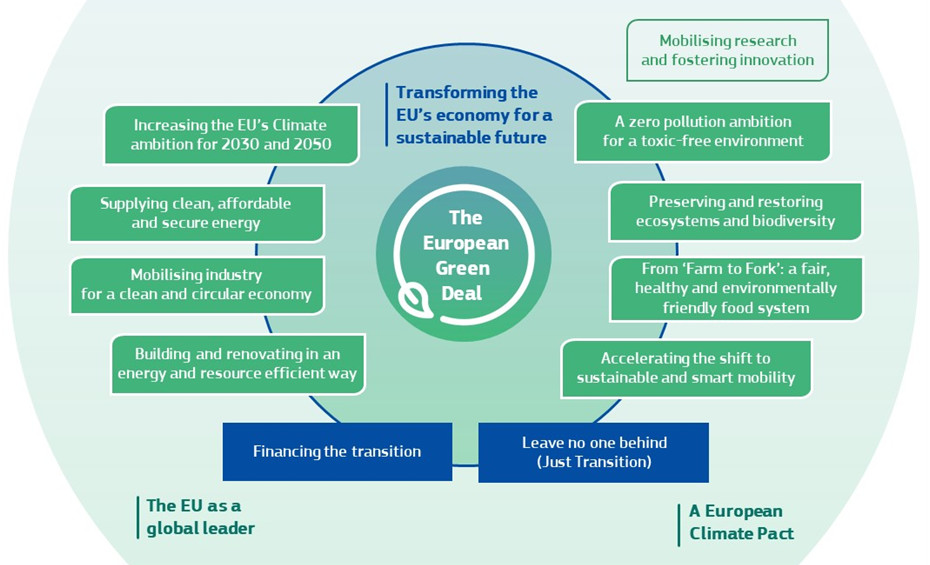Green Deal
Due to being announced and launched as an EU development strategy for the 21st century, an integral part of EU strategy to implement the UN 2030 Agenda and global sustainable development goals, a new EU growth strategy that aims to transform EU into a fair and prosperous society, with a modern, resource-efficient and competitive economy where there are no net emissions of greenhouse gases in 2050 and where economic growth is decoupled from resource use, the EU’s flagship climate change strategy, a roadmap for making EU’s economy sustainable, and a new EU green diplomacy, the Green Deal is all about turning climate and environmental risks and impacts into just and inclusive developmental opportunities across all policy areas and all industrial sectors.
A carbon-free and climate-neutral Europe is once again envisioned big. This ambitious goal is additionally grounded in a number of new strategic approaches of EU that should accelerate the so needed changes: the first European Climate Law, Industrial Strategy, Biodiversity Strategy, Sustainable Food Strategy, Circular Economy Action Plan, etc.
Green Deal is a loud call for start developing in a climate and environment-friendly way; it is a paramount promise of mainstreaming sustainability and green growth into all policies and strategies. It means that all policies at the EU level will be viewed through the prism of sustainability.
The expectations from this EU Commission’s leading document are more than big; to boost efficient use of resources by moving to a clean, circular economy and diminish negative impacts of climate change, to revert biodiversity loss and cut pollution.
It covers all sectors of the economy notably production, supply and use of energy, transport and mobility, agriculture and food production, construction, building and renovating, industries such as steel, cement, textiles, plastics, chemicals, ICT. Nevertheless, it addresses all energy and resource-intensive industries.

